How Does Turkey Tail Support Brain Health?
Have you ever wondered how a colorful forest mushroom could possibly benefit your brain? As it turns out, turkey tail brain health benefits are deeply rooted in science, working through multiple fascinating pathways that protect and support cognitive function.
When I first finded turkey tail mushrooms during my personal health journey, I was amazed by their potential beyond immune support. These fan-shaped fungi offer remarkable benefits for our most complex organ through several key mechanisms:
The antioxidant protection turkey tail provides comes from compounds like ergothioneine and polyphenols that act as powerful free radical scavengers. These natural compounds create a protective shield around your brain cells, defending them from oxidative damage that contributes to cognitive decline.
The mushroom's anti-inflammatory effects are equally impressive. By naturally suppressing pro-inflammatory cytokines like TNF-, IL-6, and IL-1, turkey tail helps maintain a balanced inflammatory response in the brain – crucial for preserving cognitive function as we age.
Perhaps most fascinating is turkey tail's role in microbiome support. The polysaccharides in turkey tail act as prebiotics, nourishing beneficial gut bacteria that produce short-chain fatty acids. These compounds communicate with your brain through the vagus nerve, strengthening the gut-brain connection that's increasingly recognized as vital for mental clarity and emotional balance.
The immune modulation properties of turkey tail help maintain balanced immune responses that directly influence brain health. By supporting healthy immune function, turkey tail helps create an optimal environment for cognitive processes and neural protection.
Research shows that turkey tail's neuroprotective benefits are particularly noteworthy when combined with other brain-supporting herbs. When paired with ginkgo biloba, studies reveal improved memory and reduced brain damage in animal models, suggesting powerful synergistic effects.

Antioxidant & Anti-Inflammatory Mechanisms
The brain is particularly vulnerable to oxidative stress due to its high energy demands and limited regenerative capacity. Turkey tail mushroom contains powerful compounds that combat this vulnerability in multiple ways.
The ergothioneine in turkey tail acts as a "master antioxidant," concentrating in tissues with high oxidative stress levels, including the brain. It works alongside other compounds to reduce reactive oxygen species (ROS) that can damage neural tissue. Some research suggests turkey tail's antioxidant properties can even mimic superoxide dismutase (SOD), one of your body's primary natural antioxidant enzymes.
On the inflammatory front, turkey tail brain health benefits include the downregulation of key inflammatory markers like TNF- and IL-6. This anti-inflammatory action helps protect delicate neural tissue from damage and supports overall brain function. For those interested in understanding adaptogens and their effects on stress response, the Cleveland Clinic offers excellent research on adaptogenic compounds like those found in medicinal mushrooms.
Microbiome → Brain Pathway
The connection between gut health and brain function is one of the most exciting areas of neuroscience research today. Turkey tail's prebiotic polysaccharides nourish beneficial gut bacteria, creating a cascade of positive effects that reach all the way to your brain.
As these beneficial bacteria flourish, they produce more short-chain fatty acids (SCFAs) like butyrate, which reduce intestinal inflammation and strengthen gut barrier integrity. These SCFAs then trigger signaling through the vagus nerve – a direct communication highway between your gut and brain.
This gut-brain connection explains why so many people report improved mental clarity and mood when incorporating turkey tail into their wellness routines. By supporting a healthy microbiome, turkey tail helps establish optimal conditions for cognitive function.
Immune-Mediated Neuroprotection
The immune system and brain are intimately connected, with immune cells playing crucial roles in neural health. Turkey tail's beta-glucans activate Toll-like receptor 2 (TLR2), initiating immune responses that ultimately support brain health.
This activation leads to improved natural killer (NK) cell activity, creating what scientists call "NK-cell crosstalk" with the nervous system. Additionally, the beta-glucans in turkey tail appear to "train" immune cells through a process called trained immunity, helping them respond more effectively to threats while maintaining balance.
By supporting these immune-brain connections, turkey tail brain health benefits extend beyond simple protection – they help create an environment where your brain can thrive.
Simple turkey tail brain health glossary:
Meet the Turkey Tail: Nature's Multicolour Brain Booster
Walk through any forest after a good rain, and you might spot the vibrant, fan-shaped caps of turkey tail mushroom (Trametes versicolor) adorning fallen logs and stumps. With their striking concentric rings of brown, tan, white, and bluish hues, these fungi truly do resemble a wild turkey's fanned tail feathers – hence their common name. But there's much more to these colorful fungi than meets the eye, especially when it comes to turkey tail brain health benefits.
Turkey tail isn't just pretty to look at – it's a hardworking decomposer that breaks down dead wood, recycling vital nutrients back into forest ecosystems. What makes this mushroom particularly fascinating for wellness enthusiasts is its rich array of bioactive compounds that appear to support brain function through multiple pathways.
The star players in turkey tail's biochemical profile include powerful beta-glucans (complex carbohydrates with immune-modulating properties) and two key polysaccharide compounds:
- PSP (Polysaccharopeptide) – Primarily found in Chinese strains, containing rhamnose and arabinose sugars
- PSK (Polysaccharide-K) – Predominantly in Japanese strains, containing fucose sugars
Both compounds have molecular weights of approximately 100 kDa and are responsible for many of turkey tail's health-supporting properties. The mushroom also contains ergothioneine – a unique amino acid with powerful antioxidant properties that may specifically benefit brain cells by protecting them from oxidative damage.
Ancient Wisdom & Modern Uses
Long before scientists identified turkey tail's bioactive compounds, traditional healers recognized its value. In traditional Chinese medicine (TCM), where it's known as "Yun Zhi" (cloud fungus), turkey tail has been brewed as a tea for centuries to support overall wellness and balance vital energy.
What's particularly interesting is how TCM practitioners used turkey tail to strengthen what they call "Shen" – a concept encompassing mental and spiritual well-being. This historical use aligns surprisingly well with our modern understanding of how turkey tail brain health benefits might work.
In Japan, turkey tail extract (known as "Kawaritake" or PSK) has been approved as an adjunctive cancer treatment since the 1970s – one of the earliest examples of traditional mushroom wisdom being validated by modern science. While historically not specifically prescribed for cognitive conditions, turkey tail's traditional use for overall vitality provides an interesting foundation for exploring its potential brain benefits.
Today, many people incorporate turkey tail into their wellness routines through teas, extracts, and supplements, appreciating both its time-honored traditions and the growing body of research suggesting its benefits for immune function and potentially brain health.
How Does Turkey Tail Support Brain Health?
When it comes to turkey tail brain health benefits, this remarkable mushroom works through several fascinating pathways that scientists are just beginning to understand fully. Let's explore how this colorful fungi might be supporting your cognitive function behind the scenes.
Antioxidant & Anti-Inflammatory Mechanisms
Our brains are particularly vulnerable to oxidative damage. Think of turkey tail as a natural shield, packed with protective compounds that help safeguard your precious neurons:
Turkey tail contains more than 35 different phenolic compounds that act as antioxidants, neutralizing harmful free radicals before they can damage brain cells. Its flavonoids (including quercetin and baicalein) have demonstrated impressive neuroprotective properties in research settings. Perhaps most intriguing is ergothioneine—a unique amino acid antioxidant that seems to accumulate specifically in brain tissue, offering targeted protection where you need it most.
But turkey tail doesn't stop at antioxidant protection. It's also a powerful modulator of inflammation, which plays a crucial role in brain health. In an Alzheimer's disease mouse model, researchers found that turkey tail polysaccharide (90 mg/kg/day) significantly reduced the expression of pro-inflammatory mediators including TNFα, IL-6, and IL-1β in brain tissue. This anti-inflammatory action appears to work partly through regulating NF-κB signaling and balancing microglial activity—the brain's immune cells that can sometimes cause more harm than good when overactivated.
One particularly exciting study combined turkey tail extract with ginkgo antioxidants in mice with Alzheimer's-like symptoms. This natural combination improved memory performance and reduced brain damage, suggesting these two natural substances might work even better together than alone.
Microbiome → Brain Pathway
One of the most fascinating aspects of turkey tail brain health research involves what scientists call the gut-brain axis—the two-way communication highway between your digestive system and your brain.
Turkey tail contains beta-glucans and other complex polysaccharides that function as prebiotics, selectively feeding beneficial gut bacteria while discouraging harmful ones. Research has shown that PSP (one of turkey tail's bioactive compounds) increased populations of beneficial Bifidobacterium and Lactobacillus bacteria while reducing potentially harmful strains like Clostridium and Staphylococcus.
This microbiome support may benefit your brain through several mechanisms:
First, beneficial gut bacteria produce short-chain fatty acids that can reduce inflammation throughout the body, including the brain. Second, your gut communicates directly with your brain via the vagus nerve, sending signals that influence mood and cognition. Third, over 90% of your body's serotonin (a key neurotransmitter for mood regulation) is actually produced in the gut. Finally, turkey tail may help maintain intestinal barrier integrity, preventing "leaky gut" that can contribute to neuroinflammation.
Immune-Mediated Neuroprotection
Turkey tail's most well-documented effects involve immune modulation, which indirectly supports brain health in several ways:
The PSK compound from turkey tail acts as a TLR2 agonist, potentially "training" innate immune responses to be more efficient. Turkey tail polysaccharides may also improve natural killer cell activity, which plays an important role in brain immunosurveillance—the process of monitoring and protecting the brain from threats. Additionally, the beta-glucans in turkey tail can induce what scientists call "trained immunity," potentially improving the body's response to various challenges that could affect brain function.
These immune effects could help protect your brain from infections, reduce chronic neuroinflammation, and support overall neurological health in ways we're still finding.
When combined with other evidence-based approaches to brain health—like regular exercise, adequate sleep, and a nutrient-rich diet—turkey tail mushroom offers an intriguing natural addition to your cognitive wellness toolkit. While more human clinical trials are needed, the existing research on turkey tail brain health suggests this beautiful mushroom may be as good for your mind as it is beautiful to behold in the forest.
What the Science Says About turkey tail brain health
The scientific research on turkey tail brain health is still emerging, but what we do have looks quite promising. While many people know turkey tail for its immune-supporting properties, researchers are increasingly excited about its potential benefits for our brains.
In one fascinating study using a mouse model of Alzheimer's disease, researchers found that turkey tail polysaccharide (given at 90 mg/kg daily) significantly improved memory performance on cognitive tests. Even more interesting was how it reduced pro-inflammatory mediators in the brain—essentially helping to calm the neural inflammation that's associated with cognitive decline.
A human clinical trial with Meniere's disease patients showed another important mechanism. When participants took turkey tail preparations (500 mg tablets every 12 hours), they experienced reduced oxidative stress markers in their blood cells along with increased antioxidant enzyme activity. This suggests that turkey tail may help protect cells throughout the body—including brain cells—from oxidative damage.
The neuroprotective effects were further highlighted in a 2013 rat study where turkey tail extract reduced lipid peroxidation (measured by MDA levels) in brain tissue after exercise. The extract also increased superoxide dismutase (SOD), an important antioxidant enzyme that helps protect brain cells from exercise-induced oxidative stress.
One particularly intriguing findy involves what scientists call "vitagenes." Turkey tail polysaccharides have been shown to induce these protective genes (like lipoxin A4) in the brain. This creates a fascinating link between fungal compounds and the cellular stress response pathways that can help protect neurons.
Many of these studies are still preclinical—meaning they've been conducted in animals or cell cultures rather than in large human populations. While the results are encouraging, we definitely need more human clinical trials specifically looking at cognitive outcomes to fully understand how turkey tail brain health benefits might translate to everyday brain function.
Comparing Turkey Tail to Lion's Mane & Other Mushrooms (turkey tail brain health)
When exploring turkey tail brain health benefits, it's helpful to understand how it compares with other functional mushrooms that support cognitive wellness.
Lion's Mane stands out as the most well-researched mushroom for direct brain benefits. Its primary mechanism involves stimulating nerve growth factor (NGF) and brain-derived neurotrophic factor (BDNF)—proteins that essentially help your brain create and maintain neural connections. Human clinical trials have shown improved cognitive scores in older adults with mild cognitive impairment. What makes Lion's Mane unique is its potential to support actual nerve regeneration and myelination.
Reishi, on the other hand, works through adaptogenic effects that help the body manage stress, improve sleep quality, and balance mood. Human studies have demonstrated these benefits, which indirectly support brain function by addressing stress-related cognitive issues. If you're dealing with mental fog from stress or poor sleep, Reishi might be particularly helpful.
Turkey Tail offers a different approach to brain support. Its primary mechanisms include antioxidant protection, anti-inflammatory effects, and microbiome support. While there are fewer direct cognitive studies on turkey tail compared to Lion's Mane, its strong prebiotic effects on the gut microbiome create a unique pathway to brain health through the gut-brain axis.
Many neurological health practitioners recommend combining multiple mushroom species for synergistic effects. For example, turkey tail's immune and gut support may beautifully complement Lion's Mane's direct neurotropic effects. This "whole is greater than the sum of its parts" approach makes sense when we consider how interconnected our body systems are—especially when it comes to brain health.
The exciting thing about turkey tail brain health research is that it's opening up new understandings of how gut health, immune function, and inflammation all play crucial roles in cognitive wellness. Rather than viewing these mushrooms as competitors, we might better understand them as complementary tools in our cognitive wellness toolkit.
Practical Guide: Forms, Dosage & Stacking
When it comes to using turkey tail brain health benefits, finding the right form and dosage can make all the difference. Let's explore the practical side of incorporating this remarkable mushroom into your wellness routine.
Forms of Turkey Tail
The way you consume turkey tail can significantly impact its effectiveness for brain support. Dual-extracted capsules are my personal favorite for busy lifestyles—they deliver a consistent dose with both water-soluble beta-glucans and fat-soluble compounds like ergothioneine in one convenient package.
If you prefer flexibility, extract powder blends beautifully into morning coffee, smoothies, or even oatmeal. I've found this form particularly helpful for those who enjoy creating their own wellness concoctions.
For those who appreciate tradition, turkey tail tea offers a mindful ritual, though it typically provides a less concentrated dose than extracts. Meanwhile, tinctures provide a fast-absorbing liquid option that many find convenient for on-the-go use.
For optimal brain health support, I recommend looking for dual-extracted products that capture the full spectrum of beneficial compounds. Single-extraction methods miss either the water-soluble or alcohol-soluble components, potentially limiting the full range of benefits.
Recommended Dosage
While research specifically targeting brain health is still evolving, current evidence and traditional usage suggest these general guidelines:
For everyday preventive support, 1-3 grams of extract daily works well for most people. If you're addressing specific health concerns, some clinical studies have used higher therapeutic doses of 3-9 grams daily, though this should be done under professional guidance.
When selecting a product, look for those standardized to contain at least 30% beta-glucans—this helps ensure you're getting a potent, effective dose of the active compounds.
I always suggest starting with a lower dose and gradually increasing as your body adjusts. Turkey tail works best with consistent use over time—many people notice subtle improvements in clarity and focus after several weeks rather than dramatic immediate effects.
Stacking for Improved Benefits
One of the fascinating aspects of functional mushrooms is how well they work together with other beneficial compounds. For improved turkey tail brain health benefits, consider these synergistic combinations:
Ginkgo biloba pairs beautifully with turkey tail—research has shown that this combination improved memory performance in animal studies beyond what either could do alone. The neuroprotective effects of both seem to complement each other perfectly.
Omega-3 fatty acids from fish oil or algae sources work alongside turkey tail's anti-inflammatory properties to provide comprehensive brain support. I've found this combination particularly helpful for maintaining mental clarity during stressful periods.
For those seeking maximum cognitive benefits, adding lion's mane mushroom creates a powerful duo—turkey tail's immune and gut support complements lion's mane's direct neurotropic effects on brain cell regeneration.
Vitamin D is another wonderful addition, supporting both immune function and brain health through multiple pathways that work harmoniously with turkey tail's mechanisms.
Timing and Integration
The when and how of taking turkey tail can influence its effectiveness for brain health:
Taking your supplement with food helps minimize any potential digestive discomfort and may improve absorption of fat-soluble compounds. If you're using turkey tail primarily for daytime cognitive support, morning dosing helps provide immune and brain support throughout your busy day.
Interestingly, some people report improved sleep quality with turkey tail, potentially due to its effects on inflammation and stress response. If this is your experience, evening dosing might be preferable.
Be patient with the process—allow at least 4-8 weeks of consistent use before evaluating the full effects on your cognitive function and overall well-being.
Safety First
While turkey tail has an excellent safety profile, it's important to be aware of a few considerations:
Some people experience temporary mild digestive effects when starting turkey tail, including bloating or changes in bowel movements. This typically resolves as your system adjusts to the prebiotic properties.
Allergic reactions are rare but possible, especially if you have known mushroom allergies. Always start with a small amount when trying turkey tail for the first time.
If you take medications, particularly immunosuppressants or anticoagulants, consult your healthcare provider before adding turkey tail to your regimen. While interactions are uncommon, it's always better to be cautious.
There's insufficient safety data for pregnancy and breastfeeding, so it's best to consult your healthcare provider if you're in either of these groups.
Those with autoimmune conditions often benefit from turkey tail's immunomodulating effects, but the response can be individual—work with a knowledgeable healthcare provider to monitor your response.
I always emphasize that open communication with your healthcare team is essential when adding any new supplement. Your provider can help you determine if turkey tail is appropriate for your specific health needs and can monitor for any potential interactions with medications or existing conditions.
Defend Now—Organic Turkey Tail 12:1 Dual Extract Capsules
At Eversio Wellness, we've developed Defend Now, our Organic Turkey Tail 12:1 Dual Extract Capsules, with brain and immune health in mind.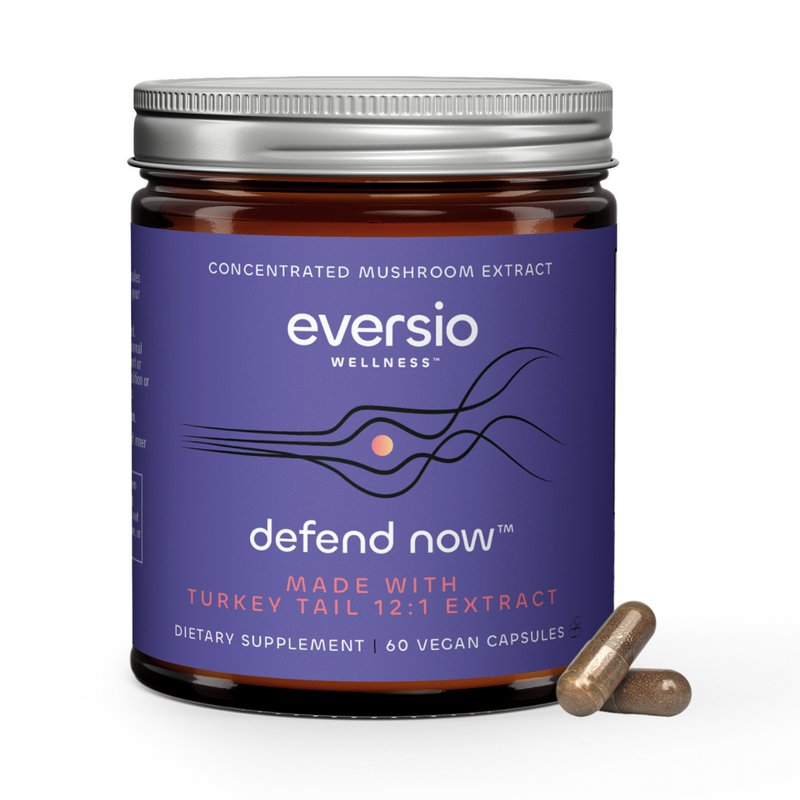
What makes our turkey tail extract special:
- 12:1 concentration ratio: Each capsule contains the equivalent of 12 grams of raw turkey tail mushroom
- Dual extraction process: Captures both water-soluble and alcohol-soluble compounds for full-spectrum benefits
- USDA Organic certified: Ensuring the highest quality standards without pesticides or contaminants
- Fruiting body only: We use only the mushroom fruiting body, not mycelium grown on grain
- Dì Dào grown: Cultivated in their native environment for optimal potency
- Standardized beta-glucan content: Guaranteed minimum 30% beta-glucans for consistent potency
- Third-party tested: For purity, potency, and contaminants
Our Defend Now capsules are designed to support both immune function and the gut-brain axis, potentially benefiting cognitive health through the mechanisms we've discussed.
Recommended usage: 2 capsules daily with food, or as directed by your healthcare provider.
Learn more about Defend Now Turkey Tail Extract Capsules
Frequently Asked Questions about Turkey Tail & Brain Health
Are there human studies on cognitive benefits?
While turkey tail mushroom has been extensively researched for its immune-boosting properties, the direct human clinical evidence specifically examining cognitive outcomes is still emerging. The most relevant human data comes from a clinical trial involving patients with Meniere's disease, which showed turkey tail supplementation reduced oxidative stress markers in blood cells and increased antioxidant enzyme activity.
This finding is promising since oxidative stress is a key factor in cognitive decline, but more dedicated research focusing directly on turkey tail brain health benefits in humans is still needed. Most of the evidence supporting turkey tail's cognitive benefits comes from animal and cell studies, which provide a foundation for future human clinical trials.
Can I combine turkey tail with my ADHD or antidepressant medication?
This is an important question that many people ask when exploring natural supplements. Currently, there's limited research on how turkey tail mushroom might interact with psychiatric medications like those used for ADHD or depression.
While turkey tail is generally considered safe, it could theoretically influence how certain medications are metabolized in your body. Mushrooms contain bioactive compounds that might affect enzyme systems involved in drug metabolism.
If you're taking prescription medications, especially those that affect brain function, I strongly recommend consulting with your healthcare provider before adding turkey tail supplements to your regimen. They can help you understand possible interactions specific to your medication and health situation.
Who should avoid turkey tail supplements?
Although turkey tail mushroom supplements are generally well-tolerated by most people, certain individuals should approach them with caution or avoid them altogether:
Those with mushroom allergies should obviously steer clear, as cross-reactivity is possible. People taking immunosuppressant medications should consult their doctor first, as turkey tail's immune-stimulating effects might counteract these treatments. Individuals with certain autoimmune conditions might experience flare-ups due to immune stimulation, though many actually find benefit (always consult your doctor). Pregnant or breastfeeding women should wait until more safety data is available. Those with bleeding disorders or taking blood thinners should use caution, as some mushroom supplements may have mild anticoagulant effects.
Natural doesn't automatically mean risk-free for everyone. Your healthcare provider can help determine if turkey tail brain health supplements are appropriate for your specific situation, especially if you have existing health conditions or take medications regularly.
Optimize Your Mind and Body with Organic Mushroom Wellness
The exciting world of turkey tail brain health is opening up new possibilities for natural cognitive support. This remarkable mushroom works through multiple pathways—antioxidant protection, anti-inflammatory action, immune modulation, and gut microbiome support—to create a holistic approach to brain health that complements other cognitive wellness strategies.
While we're still awaiting more human clinical trials focused specifically on cognitive outcomes, the existing research paints a promising picture. The combination of turkey tail's powerful beta-glucans, polysaccharides, and ergothioneine appears to create a protective environment for brain cells while supporting the crucial gut-brain connection.
I've witnessed how functional mushrooms can transform wellness journeys. At Eversio Wellness, we've dedicated ourselves to creating the highest quality mushroom extracts available. Our Defend Now Turkey Tail extract capsules exemplify this commitment—carefully crafted for optimal potency and purity to help you experience the full potential of this extraordinary fungus.
Functional mushrooms like turkey tail work best as part of an integrated approach to brain health. Think of them as one piece of your cognitive wellness puzzle, alongside proper nutrition, regular movement, quality sleep, stress management, and mental stimulation. This comprehensive approach creates the strongest foundation for long-term brain health.
The relationship between fungi and brain function is an area of growing scientific interest, with turkey tail likely to play an increasingly important role as research progresses. By incorporating high-quality turkey tail extracts into your wellness routine today, you're tapping into both ancient wisdom and cutting-edge science.
Whether you're looking to support mental clarity, protect against oxidative stress, or maintain healthy cognitive function as you age, turkey tail brain health benefits offer a natural, whole-body approach that honors the intricate connections between your gut, immune system, and brain. The future of fungi in brain health is bright, and turkey tail may be one of its shining stars.



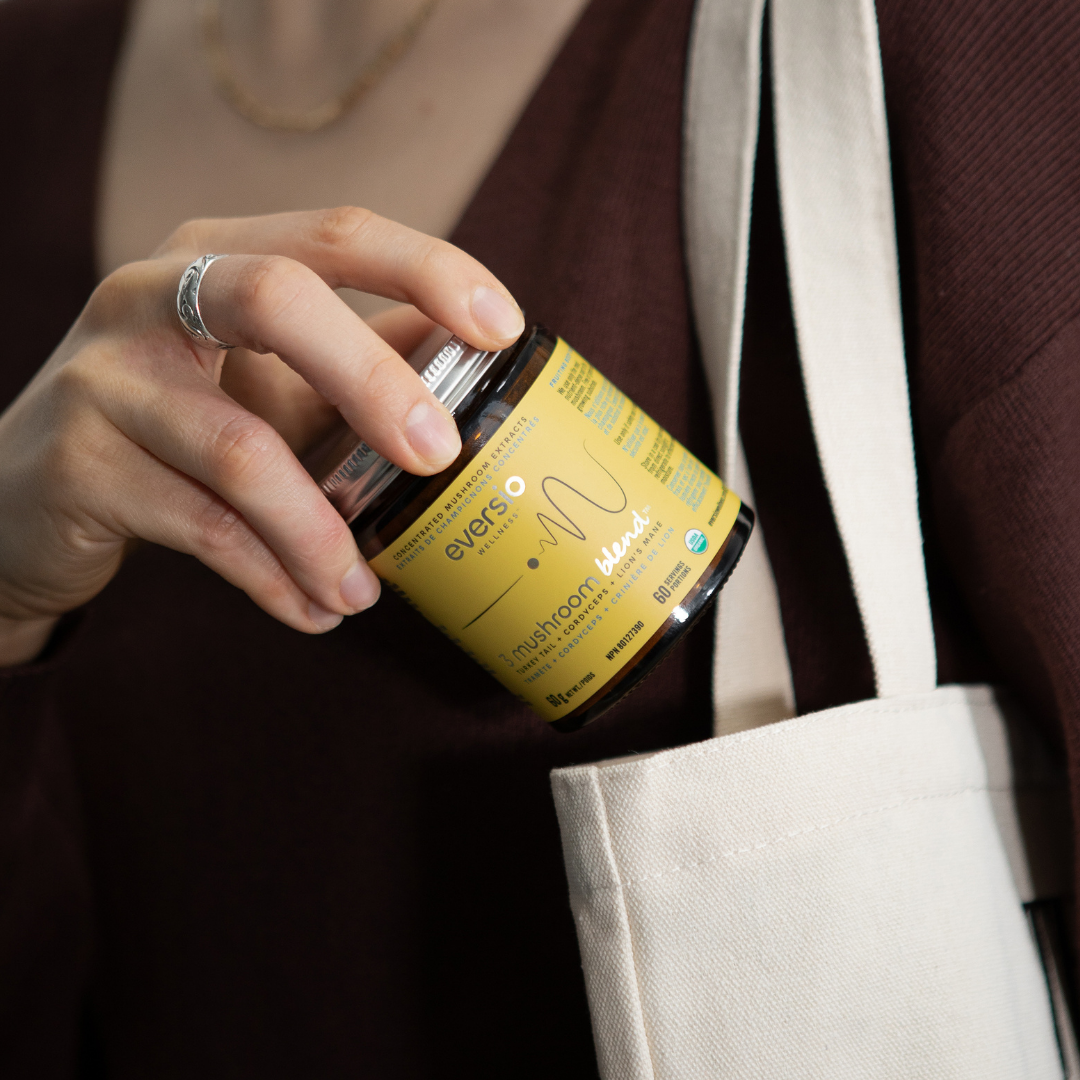

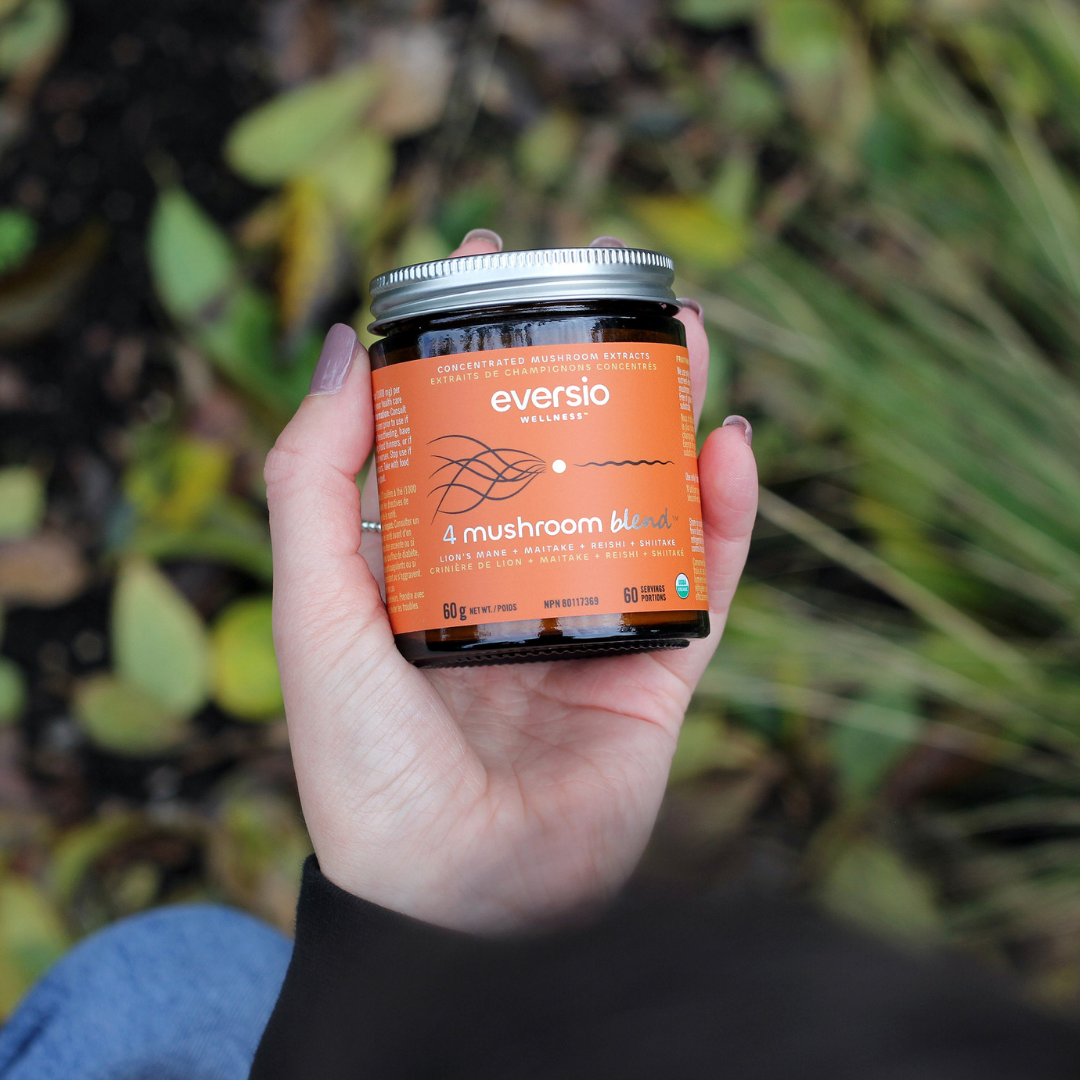



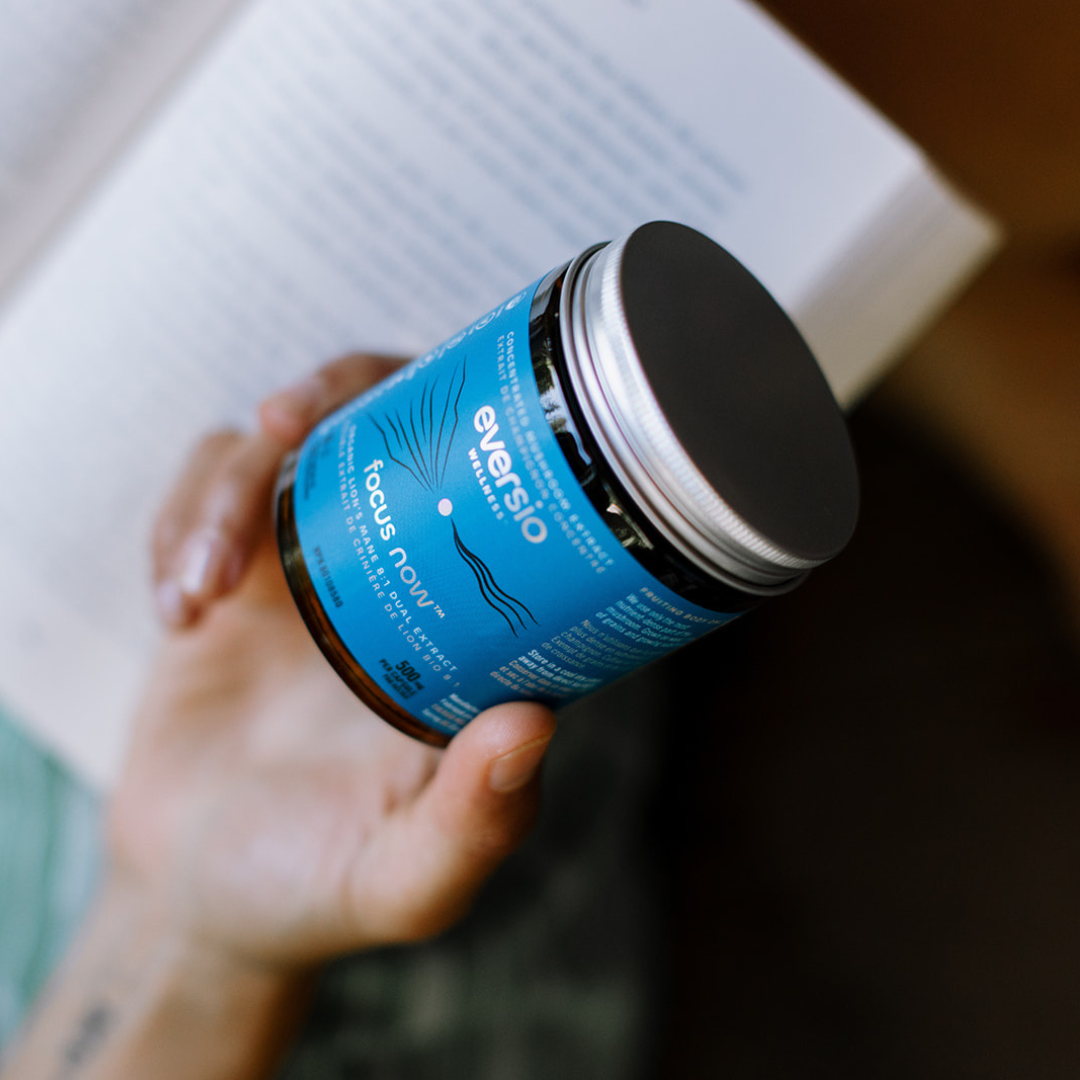

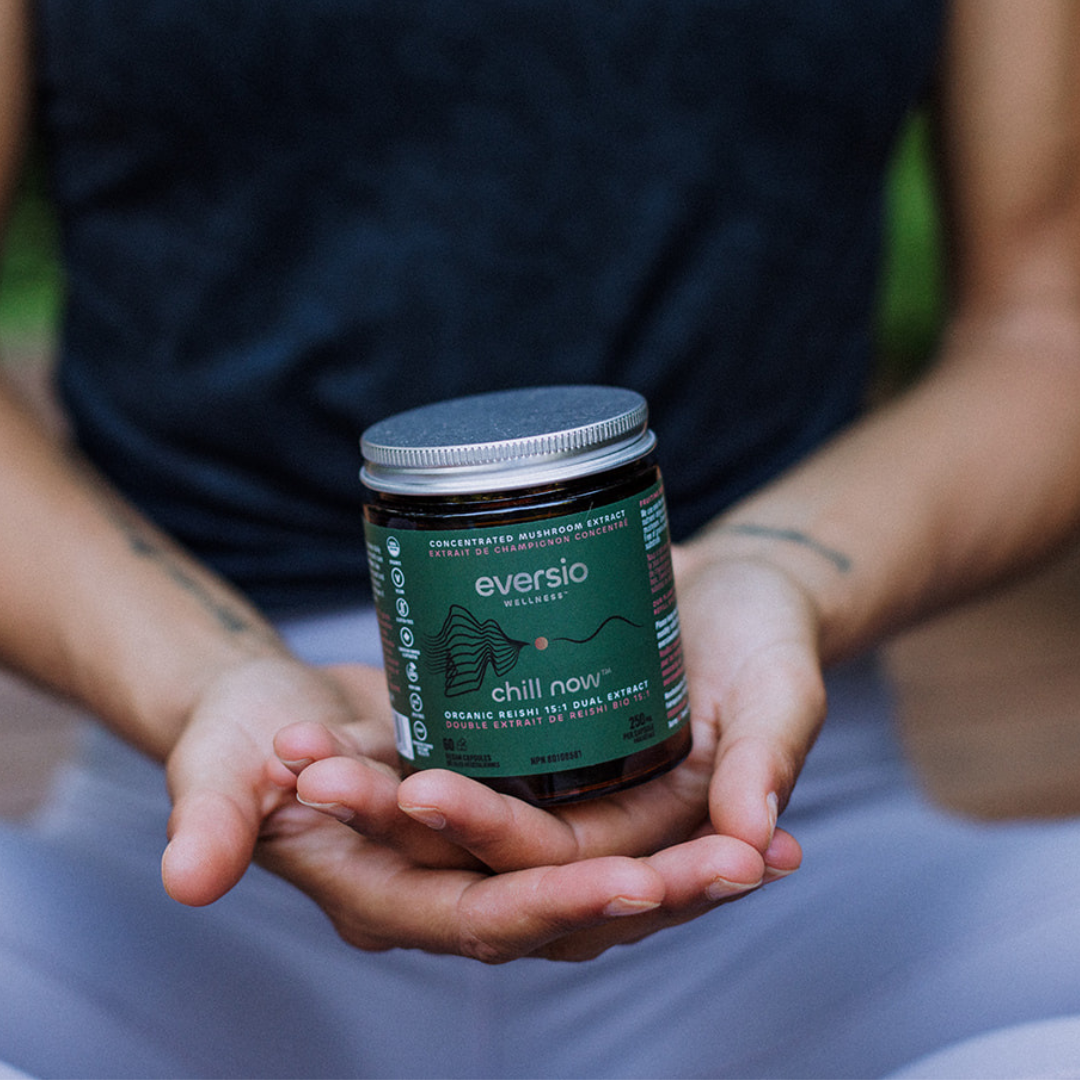








Leave a comment
This site is protected by hCaptcha and the hCaptcha Privacy Policy and Terms of Service apply.